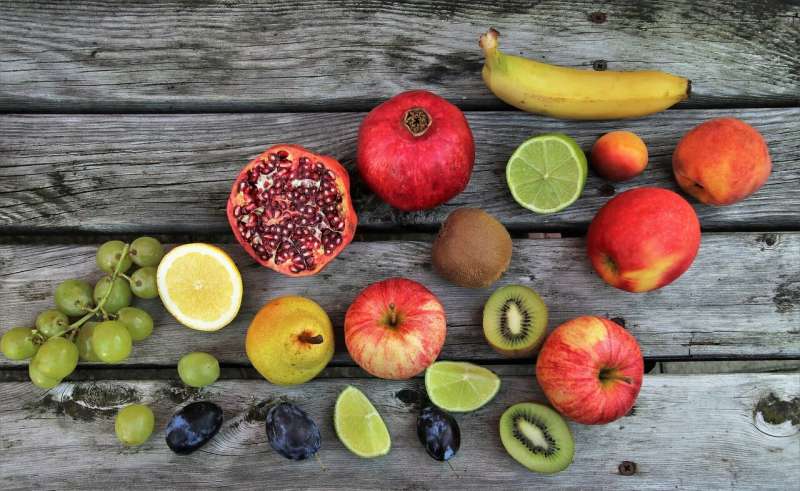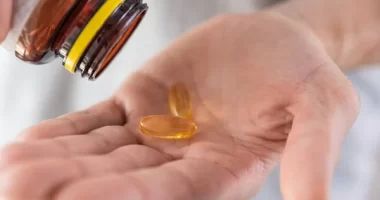
Diet to lower blood pressure? Cardiovascular disease (CVD) is the leading cause of death in the United States. Public health advocates frequently site Americans’ high-sodium diet as one factor in the nation’s cardiac health. While sodium has been definitively linked to high-blood pressure—a key risk factor for CVD—few rigorously controlled studies make the direct causal link between high sodium intake and cardiovascular damage, heart attack, or stroke.
In a new analysis, researchers from Beth Israel Deaconess Medical Center (BIDMC) examined three cardiovascular biomarkers, which are measurable indicators of cardiovascular health in the blood, to determine whether diet directly impacts cardiac health. Analyzing blood samples from clinical trial participants adhering to strict dietary regimens, the team showed that a diet proven to lower elevated blood pressure, known as the DASH diet, reduces inflammation. The findings, published in the Journal of the American College of Cardiology, also showed that the DASH diet, alone or in conjunction with a low-sodium diet, reduces heart injury and strain.
“Our study represents some of the strongest evidence that diet directly impacts cardiac damage, and our findings show that dietary interventions can improve cardiovascular risk factors in a relatively short time period,” said first and corresponding author Stephen Juraschek, MD, Ph.D., Assistant Professor of Medicine at BIDMC and Harvard Medical School (HMS). “The data reinforce the importance of a lifestyle that includes a reduced-sodium, DASH diet rich in fruits, vegetables and whole grains to minimize cardiac damage over time.”
The DASH, or Dietary Approaches to Stop Hypertension, diet has been proven to reduce blood pressure. It emphasizes consuming fruits, vegetables, low-fat dairy products, whole grains, poultry, fish and nuts while limiting saturated fats, total fat, cholesterol, red meat, sweets and sugar-containing beverages. Developed in the 1990s with the specific goal of lowering blood pressure, the well-studied diet has also been shown to prevent cancer, osteoporosis, diabetes, heart attack, stroke and cardiovascular disease.
The current study builds on two recent analyses in which Juraschek and colleagues found that the DASH diet lowered markers of cardiac injury, strain, and inflammation. However, these prior studies did not specifically examine the effects of sodium reduction, alone or combined with a DASH-style dietary program, on cardiovascular health.
In the team’s current analysis, Juraschek and colleagues, including senior author Kenneth J. Mukamal, MD, MPH, Associate Professor of Medicine at BIDMC and HMS, analyzed stored specimens from the DASH-Sodium study, conducted at four medical centers in the United States in between 1997 and 1999. In that previous study, researchers enrolled 412 participants with elevated blood pressure and randomly assigned them to either the DASH diet or a control diet designed to reflect a typical American diet. Within those two groups, each participant was assigned to one of three sodium levels (low, medium or high) for four weeks. In a controlled-feeding study, all meals and snacks were provided to participants who ate one main meal per day under observation and consumed the rest off-site.
Juraschek and team analyzed stored specimens from this study for three biomarkers, or measurable substances in the blood that have been shown to predict cardiovascular events in adults without known cardiovascular disease. The biomarkers, which are proteins known as high sensitivity cardiac troponin I (hs-cTnI), N-terminal pro-brain natriuretic peptide (NT-proBNP) and high sensitivity C-reactive protein (hs-CRP), are linked to three distinct pathways of subclinical cardiac damage: Injury, stress and inflammation, respectively.
The analysis revealed that, among trial participants on the DASH diet, biomarkers linked to cardiac damage and inflammation declined by 18 percent and 13 percent respectively. Participants combining the DASH diet with reduced-sodium impact experienced the greatest reductions in the biomarkers for injury and stress—20 percent and 23 percent, respectively—while inflammation was not significantly impacted.
While the DASH diet alone did not reduce the biomarker for stress, the stress biomarkers declined by 19 percent in study participants who consumed low sodium diets, whether they followed the DASH diet or the control diet. However, lowering sodium alone did not have a beneficial impact on cardiac injury or inflammation.
“We used highly sensitive markers of subclinical cardiovascular disease to show how two dietary strategies can improve distinct mechanisms of subclinical cardiac injury in a relatively short time period, suggesting that the improvements in cardiovascular disease risk factors observed from a reduced-sodium, DASH diet may also reduce concurrent cardiac damage,” said Juraschek. “Our study has important clinical implications, and these findings should strengthen public resolve for public policies that promote the DASH dietary pattern and lower sodium intake in the United States and globally.”
Low sodium-DASH diet combination dramatically lowers blood pressure in hypertensive adults
Beth Israel Deaconess Medical Center
Citation:
Study: Diet to lower blood pressure also improved other factors in cardiac health (2021, May 24)
retrieved 25 May 2021
from https://medicalxpress.com/news/2021-05-diet-blood-pressure-factors-cardiac.html
This document is subject to copyright. Apart from any fair dealing for the purpose of private study or research, no
part may be reproduced without the written permission. The content is provided for information purposes only.
Source:Medicalxpress








